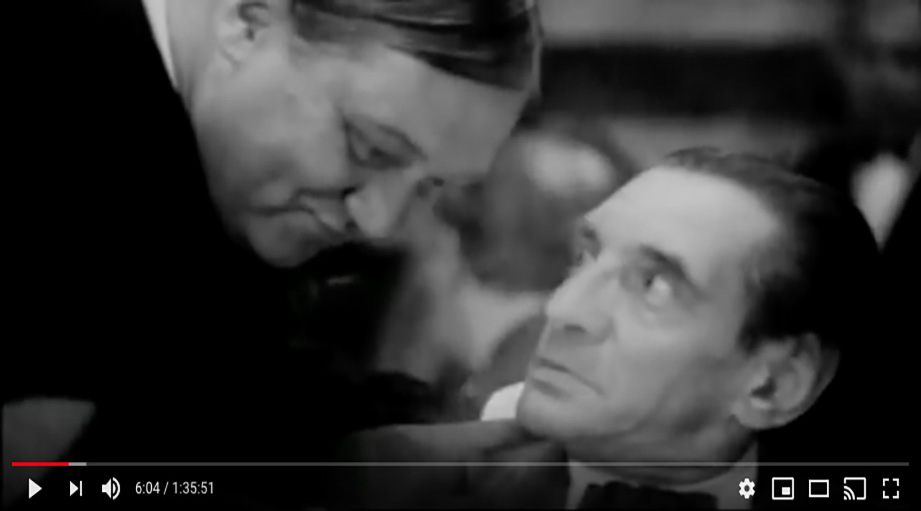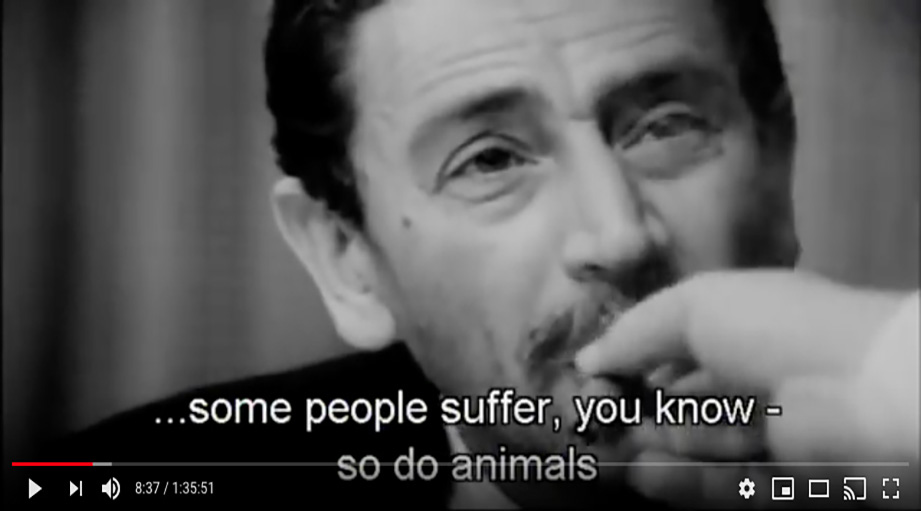Film Review: Manifestations of Perversion in “The Cremator”
Before I analyze The Cremator, the film by the Slovak film director Juraj Herz, I’m going to define what I mean by “perversion.” The structure of perversion is to derive pleasure from denying the desires of others. It’s commonly associated with enjoying the pain and suffering of others but the key aspect we need to focus on is where the desire is. So, it’s a triangular structure.
For instance, a stereotypical portrayal of perversion in Hollywood films is a villain who captures the hero and the woman he loves. He could simply shoot them both but he doesn’t; he tortures the woman in front of the hero. In this example, the object of desire is the woman.
But it can manifest much more subtly and without involving a third party. For instance, a prison guard dangling a piece of food in front of a starving prisoner, pretending to give it to him, but at the last second, he takes it back. Obviously, the object of desire is the food.
The object of desire doesn’t even have to be a physical object. For instance, if a pervert detects that someone wants an emotional affirmation/confirmation, he would deliberately deny, delay, or negate it even if he actually agrees with her.
Now, let’s take a look at the film. The full movie is available here. You can reference the time code in the screenshots below. Just within the first scene of the reception party, we have six manifestations of the perversion of the main character, Karl.
Cigar

Karl takes the cigar away from a guest and enjoys putting it out in front of him. You see the expression of resentment or disbelief on the face of the guest, and the delight on Karl’s face.
Young Couple

The young couple who can’t keep their hands off of each other is seated next to a lonely old lady. Naturally, the young couple would want some privacy to have a romantic time together but Karl denies it. The object of desire denied in this case is the romantic time together (privacy); not a physical object.
Old Lady’s Cake

The same old lady keeps asking for cake but he never gives it to her.
Q-tip

Karl picks his ear with a Q-tip right in front of his wife and Mr. Strauss who were enjoying tea, cake, and conversation.
Mr. Strauss’ Cigar

He does it again, this time to Mr. Strauss. Note the fact that he waits until Mr. Strauss lights the cigar and puts it in his mouth. Right at that moment, Karl reaches out to take it away from him. The considerate thing to do would be to stop him when he took out the cigar, before lighting it, so that he wouldn’t have to waste one. Note also that Karl completely destroys the cigar too; he doesn’t just extinguish the fire; the camera shows it in a close-up.
Lakmé’s Cake

While Lakmé is eating a piece of cake, Karl begins talking about Mr. Strauss’ illness. Just as she was about to have another bite, Karl says, “Something to do with urine, anyway.” She then stops eating the cake and puts down her plate.
Secrecy
Another aspect of perverts is secrecy. Because they exploit the desires of others, they have to keep their own desires secret. If their own desires are exposed to the victims, the victims could potentially retaliate. So, at the beginning of the film, we don’t know what his desire is while he is great at detecting the desires of others. But as the movie progresses, we find that he does have desires that he keeps secret.
Confidence
Perverts also ooze confidence. They do not doubt themselves, which is appealing to neurotics who constantly doubt themselves. So, perverts prey on neurotics. Lakmé and Mr. Strauss represent the typical neurotics being exploited by perverts.
Subscribe
I will email you when I post a new article.


